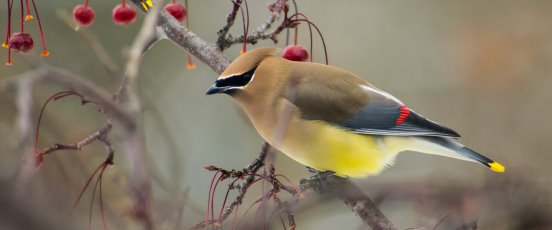
WHAT YOUR DONATIONS SUPPORT

**Emergency Appeal: Federal Funding Cut**
When you support IBP, you support the science that makes conservation work. Your donations help us:
- Expand our ability to monitor the health of bird populations on both their breeding and wintering grounds.
IBP established and runs the first continent-wide bird banding collaboration in North America: the MAPS program. For 30 years this program has been collecting vital data on birds' survival and reproduction–information that is critical to understanding the health of bird populations. IBP also administers a sister banding program called MoSI, which monitors Neotropical migrant birds during the non-breeding season in Latin America and the Caribbean.
IBP staff, as well as other scientists and land managers across the continent, use these data to understand how environmental change and other disturbances affect birds, and to develop strategies to conserve them.
- Address key conservation questions that influence land management and restoration decisions.
Through MAPS and MoSI, as well as other programs such as our Sierra Nevada Science and Conservation Program, we collaborate with federal, state, and private landowners, conducting research that directly informs practical solutions to conservation and land management challenges.
We publish our research in peer-reviewed scientific journals, ensuring that it is accessible to the conservation community. With over 300 peer-reviewed publications to our name, our partners know IBP's science is top-quality and well-vetted. Our science supports bird conservation, planning, and advocacy efforts by consortia like Partners in Flight and the North American Bird Conservation Initiative.
- Train the next generation of conservation scientists.
We take pride in our legacy of training the next generation of conservation professionals. We offer bird banding training courses, co-sponsor fellowships for Latin American biologists, and train dozens of young conservation scientists each year. IBP alumni have pursued careers in science and conservation, going on to work at state and federal wildlife and land management agencies, universities, and major conservation non-profits.
As birds face a world in flux due to habitat loss, climate change and other threats, targeted and evidence-based conservation efforts are critical. At IBP, we conduct the science that provides the foundation for effective conservation. Our research helps determine which habitats should be priorities for conservation, what land management practices benefit birds, and more.
Our Science Makes Conservation Work

Photo Credits: Top of Page, Pucmus; Bottom of Page, Becky Matsubara.
HOW TO DONATE
A sustaining monthly donation
An automatic, monthly, tax-deductible gift puts less strain on your memory and bank account while providing IBP with reliable funding to support our work. You can cancel at any time.
A one-time gift
Donating to IBP only takes a minute and your tax-deductible gift helps us find science-based solutions to conservation problems.
A legacy gift
Donating stocks, bonds, or remembering IBP in your will helps ensure that we can continue our work for decades to come. Your generosity will have an enduring benefit for bird conservation.
If you would prefer to donate by check, please send your contribution to:
The Institute for Bird Populations
PO Box 518
Petaluma, CA 94953
PO Box 518
Petaluma, CA 94953
The Institute for Bird Populations is 501(c)(3) non profit organization, so all donations are tax deductible. We will provide you with a receipt for your donation.







